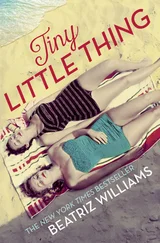Orit eventually enrolled as an architectural student at the Bezalel Academy of Arts and Design, just as her parents had suggested. I completed the period of army service I’d committed to when I took up an officer’s course and then, having decided to take a course in East Asian studies, joined her as a student. We lived happily, enjoying the little things of life, a life of blithe banality that is the destiny of every young couple. We studied together, we bought matching kitchen utensils, bed linen in ‘our’ colours of orange and mauve. Orit developed a taste for acquiring pieces of art that began to fill our small apartment and I framed and hung her paintings, a gift that made her weep with joy.
Not once did I question our love. It was as natural to me as was any part of my body. And not for a moment did I cease to be excited by her scent, her taste, her look, the feel of her smooth skin, her smile, and more than anything else, the alluring ‘Oi’, and the grins of happiness that followed it were mine and mine alone.
ICALLED THE Bureau of International Relations to fix an appointment. Orit and I were sure that the letter I’d received from them had something to do with my studies–I was already in my third year. But whereas Orit was convinced that the Bureau was part of the foreign ministry, I had a hunch that it was a branch of the security services.
I was a good student, and because of my keen interest in East-Asian cultures I took many more courses than required. I also learned Chinese. The language’s use of ideograms which are, in fact, words, interested me and I enjoyed uncovering the logic behind them. The word for ‘small’ for example, is drawn like a parent’s hands pointing at a little child; ‘big’ resembles a man with his hands outstretched to the sides; and the ideogram for ‘huge’ looks like the word for ‘big’, but with an additional upper line, and can also mean ‘sky’. Concepts, made up of a number of symbols, both amused me and were indicative of great worldly wisdom about life. ‘Struggle’ for example, is depicted by two women living under one roof.
In the lectures on Buddhism, a convenient substitute for my one-time wish to become a Buddhist monk, I learned how the Buddha gave up a prince’s life of ease and freed himself from all of Hinduism’s commandments and gods. Instead, he focused on trying to understand suffering and its causes, attempting to discover how to rid mankind of these ills. Did you know that in order to avoid suffering I have to stop holding onto you? I asked Orit after one of the lectures. But I’m prepared to suffer and go on suffering and not give you up.
I found it difficult to fully understand the idea that it was impossible to hold onto anything because whatever it is you may be holding onto inevitably changes and so do you. At the time I had no idea how much Orit and I would change in the years ahead and how much we would suffer by holding onto one another.
I realized that I had a long way to go before I really understood the Buddha and thought that the forthcoming meeting at the Bureau, which might end up with me being sent to the East, could, perhaps, be a shortcut.
The meeting was to take place at Beit Hadar , near Tel Aviv’s old central bus station.
The letter instructed me to go to a room on one of the lower basement floors and I took some time to find it. A balding middle-aged man greeted me and gave me various forms to fill out. Together we pored over my responses. He picked up on a note I’d written about wanting to finish my studies before starting work. If you want to work for us, he told me, you’ll have to undergo a prolonged series of tests that will last until the end of the academic year. But you must understand that if you’re accepted we won’t be offering you a run-of-the-mill position or a nine-to-five job. Working for us is about a way of life and a lifelong commitment.
Are you from the Mossad? I asked, my heart atremble.
It says here The Bureau of International Relations, doesn’t it? he replied without even the hint of a smile. I never raised the subject again.
The man proceeded to talk to me about the geopolitical situation in Southeast Asia, displaying considerable knowledge about the politics of the area, its colonial history, and the respective influence of China and the Soviet Union. To my shame, I understood very little about any of this, and all the information I’d accumulated about the area’s history, its ethnic makeup, and its religions, suddenly seemed virtually worthless.
It’s unbelievable, said the man from the Bureau. In China, only a hundred and fifty years ago, the British and French did whatever they wanted: they stole, pillaged, appropriated territory, burned down temples, forced the Chinese to produce opium and then sell it to them. The emperors were terrified of them. He skipped stating the obvious–that nowadays the pendulum is swinging the other way. If you want to do well, he told me, take as many courses on China as you can, and focus on the language. There our conversation ended. We parted without him seeing me out, shaking my hand, or divulging his name. He merely said that I’d probably be invited for some more tests in the future.
The invitations duly arrived. Every few weeks I found myself devoting a day to language, psycho-technical, technical, and psychological tests–convinced I’d failed the latter by saying that all the Rorschach ink blots reminded me of a woman’s hips. But I passed. I also got through the three days of arduous and unconventional field exercises involving several violations of common law and a breach of at least five of the Ten Commandments. Most of the remaining five were breached on the job itself. My examiners apparently concluded that I was sufficiently daring but not overly zealous and always kept my head. These were the qualities that got me accepted to the course. The word ‘Mossad’ had still not been mentioned.
Before the course began I managed to complete the final requirements for my degree. Orit also finished her course in architecture and joined a small successful firm of architects based in Jerusalem. At the same time, the two of us were busy with last minute preparations for our fast-approaching wedding.
We were married at the end of summer. The scent of autumn was already in the air and in the last few days before we were to be wed clouds covered the sky and in the evenings a chill northerly wind swept across the desert plains. We worried that the first rains could ruin our big day. So, just in case, two groups of friends, one from the paratroops and the other from the village, set up a huge canvas awning and a spacious Indian tent. As it happened there was no need for either.
The sight of Orit in her wedding dress was stunning. The baring of her beautiful shoulders, and the elongated slit that both revealed and concealed one of her long legs, was a brilliantly conceived idea. So was the way in which the fabric that crisscrossed her breasts exaggerated their fullness. A string of sparkling white pearls adorned her swanlike neck. Orit’s face–makeup highlighting that beguiling twinkle in her eyes–glowed with happiness. She looked so ravishingly beautiful that it came as no surprise to me to see many of those present burst into applause when she appeared.
The nameplate on the front door of our rented apartment now read: Orit and Yogev Ben-Ari. At first she found it odd that her name had changed overnight. But when I suggested that she keep her maiden name she refused, naturally accepting married life and its consequences. My brother will be the guardian of our family’s name, she said. Evening after evening when I got home she’d be there to hold me tight and kiss me, her face beaming, her eyes closed. And I would ask her to open her eyes until she finally relented, revealing that intense blue. I didn’t think it possible to still be so in love after being together for so long. But I was.
Читать дальше












